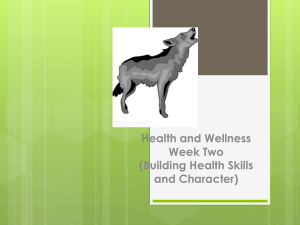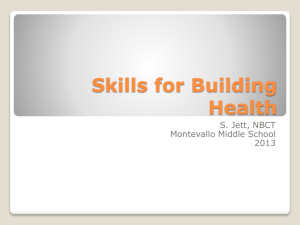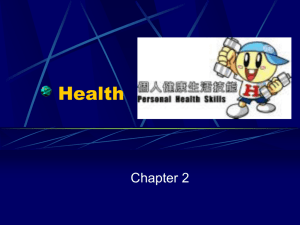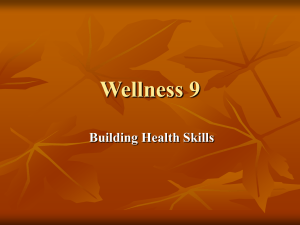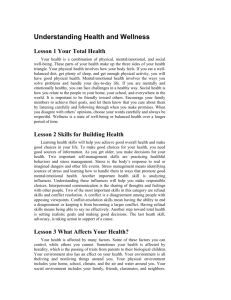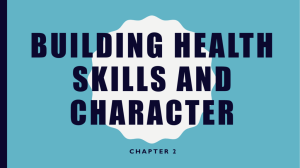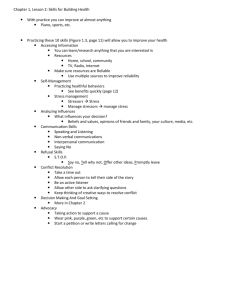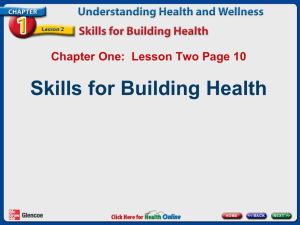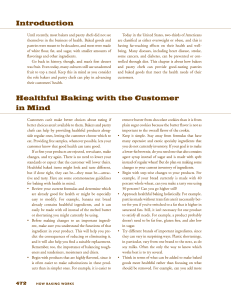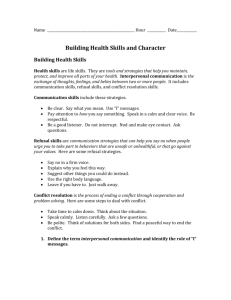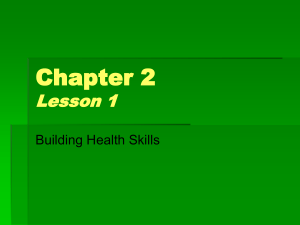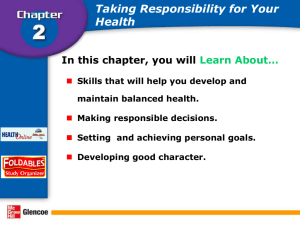Health Skills & Stress Management Notes
advertisement
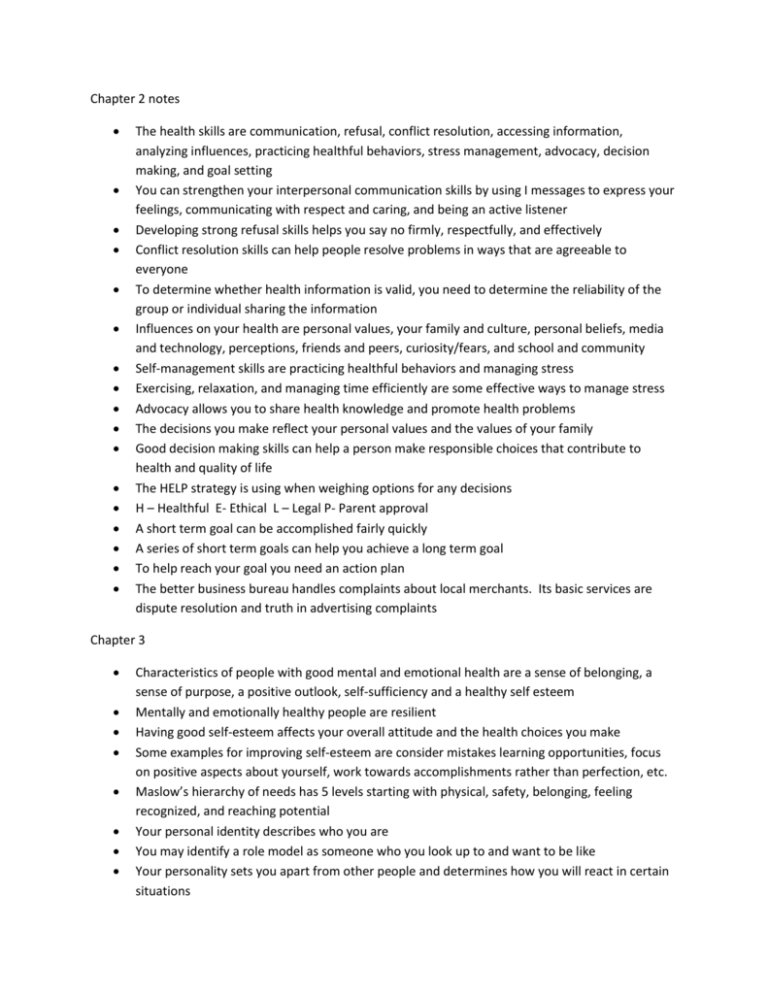
Chapter 2 notes The health skills are communication, refusal, conflict resolution, accessing information, analyzing influences, practicing healthful behaviors, stress management, advocacy, decision making, and goal setting You can strengthen your interpersonal communication skills by using I messages to express your feelings, communicating with respect and caring, and being an active listener Developing strong refusal skills helps you say no firmly, respectfully, and effectively Conflict resolution skills can help people resolve problems in ways that are agreeable to everyone To determine whether health information is valid, you need to determine the reliability of the group or individual sharing the information Influences on your health are personal values, your family and culture, personal beliefs, media and technology, perceptions, friends and peers, curiosity/fears, and school and community Self-management skills are practicing healthful behaviors and managing stress Exercising, relaxation, and managing time efficiently are some effective ways to manage stress Advocacy allows you to share health knowledge and promote health problems The decisions you make reflect your personal values and the values of your family Good decision making skills can help a person make responsible choices that contribute to health and quality of life The HELP strategy is using when weighing options for any decisions H – Healthful E- Ethical L – Legal P- Parent approval A short term goal can be accomplished fairly quickly A series of short term goals can help you achieve a long term goal To help reach your goal you need an action plan The better business bureau handles complaints about local merchants. Its basic services are dispute resolution and truth in advertising complaints Chapter 3 Characteristics of people with good mental and emotional health are a sense of belonging, a sense of purpose, a positive outlook, self-sufficiency and a healthy self esteem Mentally and emotionally healthy people are resilient Having good self-esteem affects your overall attitude and the health choices you make Some examples for improving self-esteem are consider mistakes learning opportunities, focus on positive aspects about yourself, work towards accomplishments rather than perfection, etc. Maslow’s hierarchy of needs has 5 levels starting with physical, safety, belonging, feeling recognized, and reaching potential Your personal identity describes who you are You may identify a role model as someone who you look up to and want to be like Your personality sets you apart from other people and determines how you will react in certain situations A person of good character demonstrates core ethical values, such as responsibility, honesty, and respect By demonstrating the traits of good character consistently in your actions and behaviors, you show others that you have integrity Learning to recognize your emotions and to understand their effects on you will help you learn to manage them in healthful ways One example of expressing empathy is supporting a friend who is going through a difficult time Sometimes you may use defense mechanisms unconsciously as a way to protect yourself from intense emotional pain Chapter 4 Stress can affect you both positively and negatively Positive stress can motivate you to work harder Stress is the reaction of the body and mind to everyday challenges and demands People, objects, places, events and situations are all potential stressors The effect of a stressor depends on your experiences and perceptions When you perceive something to be dangerous, difficult or painful your body automatically begins a stress response 3 stages of stress response are alarm (fight or flight), resistance, and fatigue The effects of stress are additive, meaning they build up over time Strategies for avoiding and limiting stress are using refusal skills, plan ahead, think positively, and avoid tobacco alcohol and other drugs To lower the impact of stress you can practice relaxation techniques (deep breathing, stretching, and a massage), redirect your energy, and seek support Poor eating habits can contribute to stress by causing weakness, fatigue, and a reduced ability to concentrate Grieving is a common and natural reaction to any loss that brings on strong emotions Grieving a loss is easier when you have the support of other people If you know someone who is grieving, show support by helping the person to recall happy memories and being a sympathetic listener
